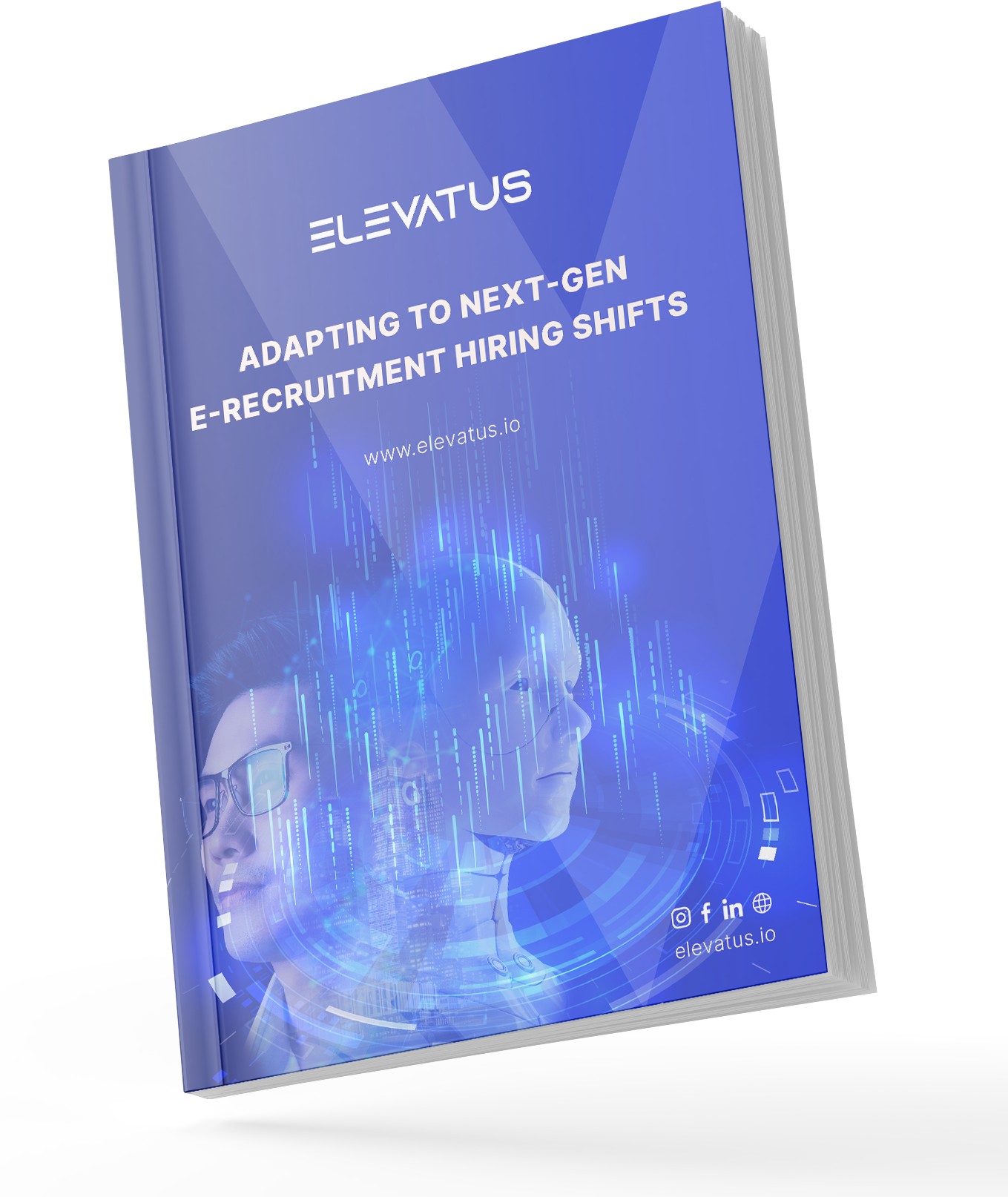
Trends
The Pros and Cons of Workcation: The Ultimate Trend For Work-Life Balance
February 15, 2024



Kiran Kazim
Content Writer
Does it make you curious?
You keep hearing about workcations – blending work and vacation. Yet it sounds like a dream. But as you sit there, sifting through endless articles and social media posts, you can’t help but wonder if it’s all too good to be true. Is this trend really the ultimate solution for work-life balance, or is it just another passing fad?
And you can’t help but ponder…
Is the dream of answering emails with your toes in the sand just a fantasy, soon to be disrupted by unreliable internet and unclear boundaries? Or could workcations actually be the future of work, offering a much-needed break from the daily grind?
Join us as we explore the pros and cons of workcation, the latest trend in the quest for work-life balance, and uncover whether it’s truly worth blending your office with the ocean.
Build a candidate experience that comes first
See how our award-winning ATS can help you deepen your talent pool and fill positions faster by building an immersive and modern candidate experience.
Request a demoTable of Contents
A New Frontier in Remote and Hybrid Work Models


The rise of workcations, blending the relaxation of vacations with the productivity of work, is reshaping remote and hybrid work models. This trend isn’t just a passing fad; it signals a major cultural change toward balancing work and leisure, reflecting the evolving expectations of today’s workforce.
In 2023, with over 90% of employees reporting satisfaction from their last workcation, and these getaways typically spanning one to two weeks, the positive impact on employee morale and retention was undeniable.
The blend of business with pleasure not only bolsters productivity—with 90% of workcationers attesting to its benefits—but also offers a viable strategy against burnout, with 80% of employees acknowledging its effectiveness.
With the rise of the digital nomad lifestyle, fueled by technology and high-speed internet access everywhere, workcations are becoming increasingly appealing. For HR professionals and recruiters, this trend necessitates a shift from traditional models, underscoring the need to incorporate workcations into organizational strategies. This approach not only demonstrates a commitment to employee well-being and flexible working arrangements but also positions companies as attractive employers for top talent, fostering a motivated, satisfied, and productive workforce.
Workcation Redefining Work and Leisure for the Modern Workforce
The modern concept of workcation is transforming the traditional boundaries between work and leisure, offering a revolutionary approach that caters to the evolving preferences of the workforce. With Seotravel highlighting that 67% of individuals go on workcations to improve their mental health and recharge, it’s clear that these experiences are more than just a change of scenery. They are a vital tool for enhancing well-being, creativity, and job satisfaction. By opting for scenic destinations or tranquil retreats, employees not only rejuvenate their minds and spirits but often return with new levels of creativity and find greater fulfillment in their work.
Workcation Wonders and Woes
Pros:
- Boosts morale
- Increases retention
- Enhances productivity
- Reduces burnout
- Ability to explore new locations
- Opportunity for personal growth
- Allows for unique experiences
Cons:
- Potential distractions
- Connectivity issues
- Difficulty separating work and leisure time
- Lack of access to office resources
- Disruption to team collaboration
- Dependence on technology for communication
More importantly, recognizing the value of workcations is crucial for organizations looking to stay ahead, as it enables a more balanced, flexible, and enriching professional life for employees. This shift towards integrating work with leisure activities underscores the importance of adapting workplace cultures to support the well-being and preferences of employees, making organizations more competitive and appealing to top talent.
What is Workcation?
A workcation represents a hybrid model of working that ingeniously combines the elements of work and vacation, enabling employees to fulfill their professional duties in a setting that deviates from their regular work environment, often somewhere more relaxing or inspiring. This concept has gained substantial relevance in the work environment, particularly as organizations and employees grapple with the challenges and monotony of traditional office settings or the isolation of working from home.
With the advent of digital technology and high-speed internet access becoming more ubiquitous, the feasibility of working remotely from any location has transformed workcation from a niche luxury into a viable, attractive option for many. It offers a refreshing break from routine, fostering mental health and boosting creativity and productivity by immersing employees in new, stimulating environments. For employers, embracing workcations signifies a commitment to flexibility and employee well-being, crucial factors in attracting and retaining top talent in a competitive domain increasingly defined by remote and hybrid work models.
The Rise of Workcations And Adapting to the Flexibility Revolution
The concept of workcations has changed as a direct response to the increasing demand for flexible work arrangements, a trend accelerated by the global shift towards remote and hybrid work models. This evolution reflects a growing recognition of the need for work-life balance, as well as the technological advancements that have made remote work more feasible and efficient than ever before.
As employees sought to break free from the confines of the traditional office space, and as companies became more open to unconventional work settings to maintain productivity, workcations emerged as a compelling solution. They offer a way to blend the structure of work with the freedom and relaxation of vacation, allowing employees to refresh their minds while continuing to contribute to their organization’s goals. This shift towards integrating work and leisure underscores a broader transformation in workplace culture, prioritizing employee well-being and flexibility over rigid schedules and locations.
Organizational Benefits Through Workcations


In the midst of heated debates among business leaders, hiring professionals, and employees about the necessity of return-to-office mandates, the preference for flexibility has become clear. A significant portion of job seekers now prioritize finding roles that offer the option to work from home for at least part of the week, as many organizations grapple with determining the essential nature of office presence and how to communicate this externally. However, this focus on the debate around office attendance overshadows the critical need for strategies that foster a sustainable, adaptable, and attractive workplace environment.
Embracing the workcation trend is a key strategy that offers numerous benefits for organizations, signifying a pivotal shift in the approach to productivity and employee satisfaction. By endorsing workcations, companies respond to the changing needs of their workforce as well as showcase their adaptability and forward-thinking stance amidst changing work dynamics. This approach enhances creativity and efficiency, providing employees with a refreshing change of scenery that marries work with leisure, thus boosting their well-being.
Moreover, promoting workcations underlines a company’s commitment to its employees’ health and satisfaction, improving its attractiveness as an employer. This strategy plays a crucial role in attracting and retaining top talent who seek flexible and autonomous work environments. The broader impact of workcations contributes to cultivating a more engaged, energized, and productive company culture, aligning with the modern standard of flexible work and enabling the development of content and highly productive teams. Let’s explore some organizational benefits through workcations in detail below.
Get your job in front of millions of candidates
Post your jobs on 2000 job boards, get job board recommendations, and source at the speed of light with EVA-REC, the world’s leading ATS.
Request a demoPromoting Employee Well-being and Job satisfaction
Promoting employee well-being and job satisfaction stands at the heart of the workcation concept, offering a unique advantage that resonates deeply within the current workforce. Now that mental health and work-life balance are increasingly prioritized, workcations emerge as a powerful tool for organizations looking to support their employees beyond the conventional office environment. This approach acknowledges that a change of scenery and the blending of work with leisure can significantly reduce stress, prevent burnout, and stimulate creativity and happiness among employees.


“Employers are wise to invest in technology, adapt policies, and train employees to create workplaces that integrate people working remotely and on-site.” – American Opportunity Survey Conducted by McKinsey & Company
By facilitating workcations, companies send a clear message: they value their employees’ well-being and recognize the importance of flexibility and personal fulfillment in the work equation. This boosts job satisfaction and also fosters a sense of loyalty and appreciation among employees. They are more likely to feel valued and understood, leading to increased engagement and productivity. Moreover, satisfied employees are the best ambassadors for their companies, attracting like-minded talent and creating a positive organizational reputation. Embracing workcations as part of an employee well-being strategy can transform the workplace into a nurturing environment that supports both professional growth and personal happiness.
Boosting Creativity and Innovation
The infusion of workcations into the corporate culture significantly boosts creativity and innovation among employees. By stepping away from the monotony of the traditional office or the distractions of home, workcations offer a fresh and stimulating environment that can spark new ideas and fresh perspectives. This change of scenery, combined with the relaxation inherent in a vacation setting, allows the mind to wander, explore, and connect dots in ways that a rigid office environment seldom permits.
Engaging in work from new, inspiring locations refreshes the spirit and encourages employees to think outside the box. Whether it’s the tranquility of a beach, the serenity of the mountains, or the vibrancy of a bustling city, each unique setting can contribute to a surge in creative thinking and problem-solving skills. This environment nurtures an innovative mindset, fostering the development of novel solutions and ideas that can drive the organization forward.
For companies, supporting workcation ideas is an investment in the intellectual and creative capital of their workforce. It acknowledges the importance of environmental and psychological factors in enhancing cognitive function and creative output. Consequently, organizations that embrace this approach are likely to see a notable increase in innovation, keeping them competitive and adaptable in the constantly changing market scenario.
Attracting and Retaining High-Caliber Talent
Attracting and retaining high-caliber talent is paramount for any organization aiming for growth and innovation. Offering workcations as part of the employment package stands out as a strategic advantage, appealing to top-tier professionals who value flexibility, work-life balance, and the opportunity for personal and professional development. This modern approach to work differentiates a company from its competitors and aligns with the preferences of a workforce increasingly inclined towards dynamic and flexible work environments.
Nearly 70% of US employees indicated a reduced likelihood of quitting post-workcation, highlighting its role in enhancing job satisfaction and loyalty.
Workcations signal to potential and current employees that a company is progressive, values its workforce’s well-being, and is committed to providing a fulfilling work experience. This can be particularly attractive to the rising number of digital nomads and remote workers seeking to merge their careers with their passion for travel and exploration. Moreover, by accommodating the desire for a more balanced and enriched life, organizations can create a loyal and motivated workforce, reducing turnover rates and building a strong, committed team.
Ultimately, the ability to attract and retain talented individuals by offering innovative work arrangements like workcations can result in a more vibrant, engaged, and productive company culture. This, in turn, drives success and sustainability in any business.
Enhancing Company Culture
Integrating workcations into the fabric of an organization does more than just offer a unique perk to employees; it fundamentally enhances company culture by fostering an environment of trust, flexibility, and innovation. This modern approach to work emphasizes the value of employee well-being and personal fulfillment, creating a more inclusive and supportive workplace. By recognizing and accommodating the diverse needs and preferences of its workforce, a company can cultivate a sense of belonging and community among its employees.
Workcations serve as proof of a company’s commitment to creating a dynamic and adaptable work environment, one that supports not only the professional but also the personal growth of its employees. This cultural shift towards valuing and encouraging work-life integration leads to increased employee engagement and satisfaction. Employees feel more connected to their organization, seeing it as an enabler of their lifestyle aspirations, not just a means to an end.
And then, a company culture that embraces flexibility and innovation attracts like-minded individuals, creating a self-reinforcing cycle of attracting talent that is creative, driven, and loyal. Such a culture becomes a significant competitive advantage, setting the organization apart as an employer of choice and a leader in fostering a forward-thinking, empowering workplace.
Addressing the Challenges HR and Recruitment in the Workcation Era


Navigating the workcation trend, HR professionals and recruiters face various scenarios of opportunities and challenges. The appeal of workcations in organizational culture is undeniable, yet their successful integration demands digital hiring tools, careful strategy, and a deep understanding of employee priorities.
Addressing these priorities, HR professionals must craft policies that not only ensure consistent productivity and team cohesion across distances but also respect the delicate balance between work and leisure that workcations entail. Also, it’s crucial to establish equitable access to these opportunities, preventing any sense of favoritism and ensuring that all employees feel valued and supported. This thoughtful approach to policy development and implementation is essential for leveraging the benefits of workcations—enhancing employee satisfaction and retention and maintaining the organizational and cultural integrity that is vital for success in the modern workplace.
Managing Work-Life Balance
One of the nuanced challenges in embracing the workcation trend is managing work-life balance. While workcations offer a unique blend of work and leisure, they also blur the traditional boundaries between the two, potentially leading to an imbalance. Employees may find it difficult to switch off from work mode, feeling compelled to remain connected and productive due to their scenic but unconventional ‘office’ surroundings. This situation can inadvertently extend work hours and encroach upon what is supposed to be leisure time, raising concerns about burnout and mental well-being.
HR professionals and recruiters must therefore be vigilant in guiding employees to establish clear boundaries while on workcation. This involves encouraging a disciplined work schedule, advocating for regular breaks, and reinforcing the importance of disconnecting from work to truly enjoy the vacation aspect. Organizations can support this balance by setting expectations around availability and by promoting a culture that values quality work over long hours. By addressing these considerations thoughtfully, companies can help employees harness the full benefits of workcations, ensuring these experiences contribute positively to their overall work-life balance and job satisfaction.
The Future of Work and Its Impact on Recruitment
Ensuring Productivity and Accountability
Ensuring productivity and accountability during workcations poses a significant challenge for organizations. The allure of new environments and the relaxation aspect of vacation can sometimes distract employees from their work responsibilities. However, with strategic planning and clear communication, companies can cultivate an atmosphere where productivity and accountability thrive, even in the most leisurely settings.
Key to this approach is the establishment of clear objectives and deliverables for employees going on workcations. By setting specific goals and deadlines, organizations can maintain a focus on outcomes rather than strictly monitoring work hours. This results-driven mindset encourages employees to manage their time effectively, balancing work duties with the enjoyment of their surroundings.
Using technology for regular check-ins and updates can foster a sense of connection and accountability among remote teams. Virtual meetings, project management tools, and collaborative platforms are invaluable in keeping everyone aligned and engaged, regardless of their physical location.
By prioritizing clear expectations, results-oriented planning, and effective use of technology, organizations can ensure that workcations enhance, rather than hinder, productivity and accountability. This balanced approach enables employees to enjoy the benefits of workcation while contributing meaningfully to their team’s objectives and the organization’s success.
Equitable Access and Policy Development
Ensuring fair access and developing well-defined policies are key for recruiters aiming to integrate workcations seamlessly into their organizational strategy. It’s vital to offer these opportunities universally, across all ranks and regions, to avoid perceptions of bias or exclusivity. Establishing transparent, detailed guidelines for workcations is crucial for setting clear expectations on eligibility, application procedures, and work commitments. This clarity helps all team members engage with the program on equal footing.
Adding to that, policies need to be adaptable, acknowledging the varied needs and life situations of the workforce. Making accommodations for employees with caregiving duties or those working remotely without a conventional office setup is essential for promoting an inclusive culture. By crafting policies with equitable access at the forefront, recruiters can create an empowering environment that supports every employee’s professional growth and personal well-being, addressing common recruitment challenges such as talent retention and employee engagement.
Legal and Logistical Implications
Addressing the intricate legal and logistical aspects of workcations is a key challenge for organizations embracing this trend. The blending of work and leisure through workcations brings to the forefront issues related to labor laws, taxation, and insurance across different regions. It’s crucial for companies to stay compliant with both domestic and international regulations to safeguard the organization and its workforce. For recruiters, this means being vigilant about potential legal hurdles, such as visa requirements and tax liabilities that come with cross-border work arrangements.
On the logistical front, ensuring that employees have everything they need to work effectively from a remote location is paramount. This includes reliable internet connectivity, a conducive work environment, and consideration of time zone variances to facilitate smooth collaboration. Additionally, prioritizing employee health and safety through travel insurance and clear emergency procedures is essential. By carefully managing these legal and logistical challenges, recruiters can help lay down a solid foundation for workcations, ensuring a risk-minimized and enjoyable experience for employees, thus addressing some of the critical operational concerns in facilitating workcations.
Recruit top talent in local languages
Expand your reach, grow your talent pool and target new markets by recruiting in multiple languages. Create fully localized experiences — from job requisition to job offer — in 9 languages.
Request a demoImplementing Workcation Policies And Best Practices


Implementing workcation policies requires a careful, structured approach to ensure that these initiatives benefit both the organization and its employees. For recruiters, navigating the modulations of workcation policies can be challenging, yet understanding and applying best practices can significantly ease the process. Here are key practices to consider:
- Develop Clear and Comprehensive Policies
Start by crafting policies that are both clear and detailed. These should cover eligibility criteria, application processes, expectations for work output, and guidelines for maintaining communication. It’s crucial that these policies are easily accessible and understandable to all employees, ensuring that everyone knows how to engage with the workcation program responsibly. For recruiters, this means being able to articulate these policies effectively to potential and current employees, setting clear expectations from the outset.
- Ensure Equitable Access
Workcation opportunities should be made available to all employees, regardless of their position or location, to avoid any perceptions of unfairness. This involves creating policies that take into account the diverse needs of your workforce, such as accommodating employees with caregiving responsibilities or those without a traditional office setup. Recruiters should be mindful of these aspects to create an inclusive environment that attracts a wide range of talent.
- Establish Guidelines for Productivity and Accountability
Maintaining productivity and accountability is essential. Set specific goals and deadlines for employees on workcations to focus on outcomes rather than strictly monitoring work hours. Utilize technology for regular check-ins and updates to keep everyone aligned. For recruiters, emphasizing the importance of these guidelines can help manage expectations and ensure that workcation policies do not compromise work quality.
- Address Legal and Logistical Considerations
Understand and comply with the legalities related to labor laws, tax implications, and insurance coverage across jurisdictions. Provide support for setting up a functional workspace, ensuring reliable internet access, and managing time zone differences. Recruiters need to be aware of these considerations to advise employees appropriately and avoid potential legal issues.
- Promote Work-Life Balance
Encourage employees to establish a balance between work and leisure activities while on workcation. This can include setting specific work hours and encouraging offline time. Recruiters play a crucial role in communicating the importance of balance to prevent burnout and enhance job satisfaction.
- Monitor and Adjust Policies as Needed
Finally, continuously monitor the effectiveness of workcation policies and be open to making adjustments based on feedback and changing circumstances. Recruiters should actively seek input from employees about their workcation experiences and use this information to refine policies, ensuring they remain relevant and beneficial for all involved.
Future of Work And The Role of Workcation


The concept of workcation is coming across as a vital element in shaping the future of work. This innovative approach, blending the flexibility of remote work with the refreshment of a vacation, is redefining what it means to be productive and satisfied in one’s professional life. Workcations offer a glimpse into a future where the rigid boundaries between work and personal life blur, giving way to a more integrated, flexible, and fulfilling work experience.
For organizations and recruiters, embracing workcations is not just about staying abreast of workplace trends; it’s about actively participating in the transformation of work culture. By recognizing and facilitating workcations, companies can attract top talent, enhance employee well-being, and foster a dynamic, innovative environment that is well-suited to the demands and opportunities of the 21st century.
Workcations and the New Work Frontier Navigating Future Trends
Workcations sit at the crossroads of several broader trends shaping the future of work, blending remote work flexibility, digital nomadism, and an increased focus on work-life balance. As businesses and employees alike navigate the post-pandemic world, the appetite for flexible work arrangements has surged, underscoring the importance of adaptability and employee well-being in the modern workplace. Workcations represent a natural evolution in this context, offering a tangible solution that addresses these needs by allowing employees to rejuvenate in new environments without sacrificing productivity.
67% of employees prefer workcation due to mental health reasons
61% of employees prefer workcation because they don’t have to use up as much of their annual leave to see new places
31% of employees prefer workcation so they can go for a change of scenery
28% of employees prefer workcation so they can go to meet friends or family
Moreover, workcations contribute to the dematerialization of the office, as technology enables professionals to connect and collaborate from anywhere in the world. This shift challenges traditional notions of the workplace and encourages companies to rethink how they support and engage their workforce. By incorporating workcations into their operational models, organizations signal their commitment to innovation, flexibility, and a holistic approach to employee satisfaction.
Adapting HR Strategies to Meet Evolving Employee Expectations
As you move forward, employee expectations are set to evolve further, with a greater emphasis on flexibility, well-being, and purpose-driven work. Workers increasingly seek roles that offer not just a paycheck, but a lifestyle that aligns with their values and personal goals. This shift necessitates HR professionals to continue adapting by embracing more holistic approaches to employee engagement and retention.
To stay ahead, HR can lean into flexible work arrangements, like workcations, that cater to these changing desires, offering a blend of productivity and personal time. Additionally, creating a culture that prioritizes mental health and continuous learning will become essential. HR must also harness technology to facilitate seamless remote work, ensuring employees have the tools and support they need, regardless of their location.
By staying attuned to these evolving expectations and being proactive in addressing them, HR can ensure their organizations remain attractive to current and prospective employees, positioning themselves as leaders in the future of work.
Adapting to Next-Gen E-Recruitment Hiring Shifts
Dive into the future of hiring with our eBook, where you’ll discover how to navigate the shift from traditional to e-recruitment, tackle digital challenges, and balance human elements in the online hiring landscape.
Download Now!

Final Thoughts
Adopting workcations is strategic for HR, blending remote work flexibility with vacation benefits to boost productivity and appeal to top talent. This approach signals a commitment to employee well-being, making companies more attractive in a competitive market. HR leaders are encouraged to integrate workcations into their strategies to enhance employee satisfaction and drive organizational success.
Frequently Asked Questions
What legal considerations should HR be aware of when implementing workcation policies?
HR should be mindful of labor laws, tax regulations, and insurance requirements that vary by location, especially for international workcations. Compliance with local employment laws, understanding visa requirements for working abroad, and ensuring that remote work policies adhere to tax implications are crucial. Additionally, it’s important to consider the health and safety regulations that protect employees, even when they are working outside of the traditional office environment.
How can we measure the impact of workcations on employee productivity and well-being?
To gauge the effectiveness of workcations, organizations can use surveys and feedback tools to collect employee perceptions of well-being and job satisfaction before and after a workcation. Monitoring work output and comparing performance metrics during workcations against standard working periods can also provide insights into productivity changes. Regular check-ins and qualitative feedback sessions can further illuminate the benefits and areas for improvement.
How can workcations be made accessible to all employees, regardless of their roles?
To ensure equitable access to workcations, organizations can establish clear, inclusive policies that outline eligibility without bias towards specific roles or seniority levels. Offering a variety of workcation options that cater to different needs and preferences, such as varying locations and durations, can help. Additionally, providing resources and support for setting up remote workspaces can make workcations feasible for a broader range of employees, including those in operational or customer-facing roles.
Turn top talent to employees fast
Hire, assess, onboard and manage top talent for every job. See how Elevatus streamlines everything; from acquire to new hire.
Request a demoAuthor



Kiran Kazim
Don't miss a thing!
Stay one step ahead. Subscribe and get the latest updates, news, and insights from Elevatus straight to your inbox.




